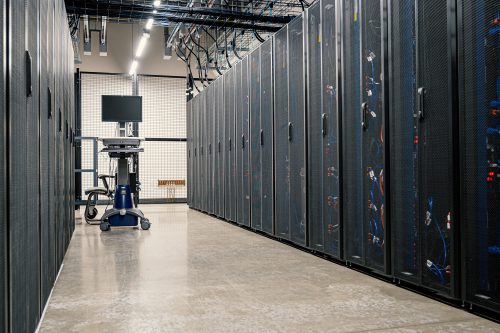
Managing remote access to the corporate network is a challenging task, especially with the increased demand for the virtualization of data center infrastructures and remote work.
You may be familiar with the term “no VPN,” which refers to a remote access server that does not require a VPN connection in order to access your corporate network remotely. A popular solution for this is an integrated virtual desktop infrastructure solution (VDI).
What is Virtual Desktop Infrastructure (VDI)?
VDI is a technology that utilizes virtual machines to offer and manage virtual desktops. It’s made of three components: a virtualization platform, a connection broker, and a profile management solution. VDI is ideal for remote workstations, as it offers security, flexibility, and management.
The desktop image of the operating system runs on virtual machines (VMs) over a hypervisor, which installs multiple desktop operating systems as virtual machines over a server.
These images are delivered to endpoint devices (like desktops or smartphones) over a network. Users can then use the endpoint devices to interact with the operating system and its apps.
What Are Your Alternatives to Virtual Desktop Infrastructure?
There are multiple reasons why you’d want to invest in any alternative. Maybe a costly investment has been made in virtual desktop hardware, infrastructure, and staff, or sensitive data needs to be kept on-site. Either way, consider the following alternatives.
Application Virtualization
Application virtualization provides a method of virtualizing apps without having to create an entire virtual desktop. Since this option is affordable and scalable, it’s often used by startups that need to create a remote workforce ASAP. What’s more, these apps excel in user experience.
Triofox.com seeks to empower home and remote workers with a simple and secure file server that allows users to access data from anywhere. This solution completely removes the need for a VPN, which requires a stable and active connection. Triofox is always on and accessible.
Traditional VDI Solutions
If you still have skin in the game and don’t want to transfer your files over, VMware, Citrix, and Parallels RAS are often considered to be the best-of-the-best when it comes to VDI.
- VMware: VMware can be hosted or on-premise and excludes CALs/VDA. Although it’s expensive to implement and run, it’s a capable product that features strong integration.
- Citrix: Citrix is just as good, if not better than VMware in its integration. It also excluded CALs/VDA and can be put on-premises or purchased hosted.
- Parallels RAS: A “hybrid solution,” Parallels RAS is a cloud and hosted VDI that offers the same features as the above, except it can be a persistent or non-persistent VDI.
If you’re using Windows Virtual Desktop, you’ll gain a lot by switching to a traditional VDI.
Hosted VDI Solutions
Amazon Workspace is likely the most useful hosted VDI because it operates similarly to Windows Virtual Desktop. WorkSpace can absorb the price of VDA and CALs to help reduce hidden costs associated with VDIs thanks to its “pay-as-you-go” model.
Remote Desktop Services
Remote Desktop Services (RDS) are Microsoft Windows Server features that allow users to remotely access Windows desktops and applications with a graphic user interface.
This client device requires an RDS client, and the RDS server needs a Windows Server OS to establish a remote connection with multiple RD hosts. RDS may be what you’re looking for if you want to have a single point of maintenance and reduce your licensing expenditure.
Off-Site Delivery
One alternative to VDIs is reducing the need for it altogether by leveraging other methods.
Off-site data storage/delivery can reduce data redundancy and recovery because it localizes everything in one place. What’s more, off-site storage backups can maintain copies of files if the primary server goes down, preventing business disruption and discontinuation.
Interesting Related Article: “Remote-work opportunities suits some people but not everybody“

